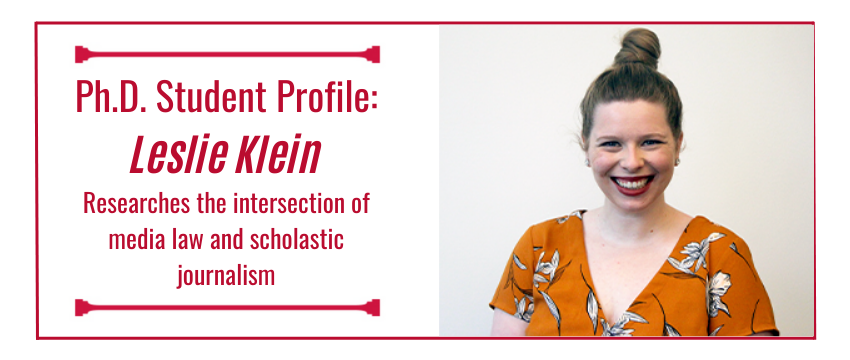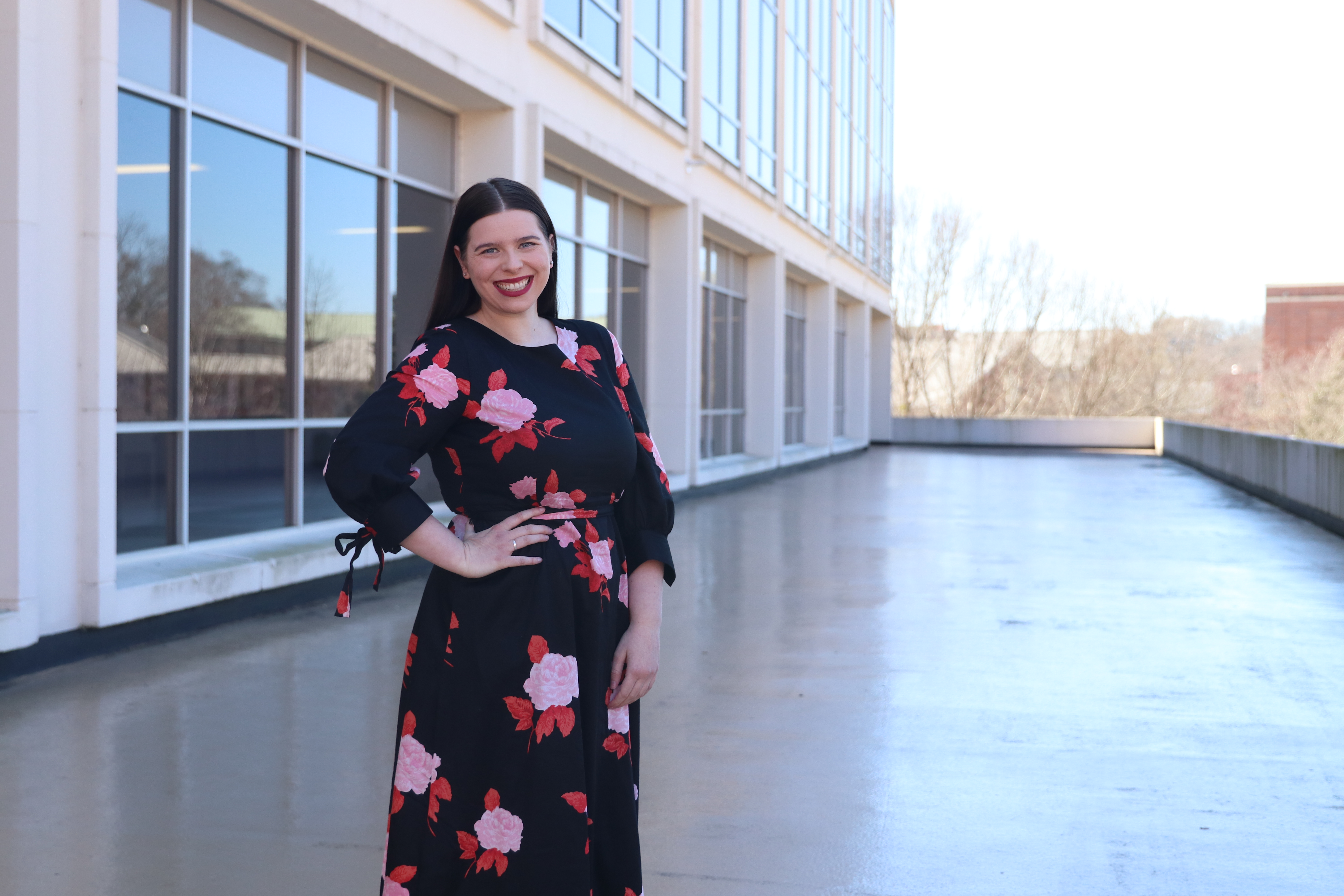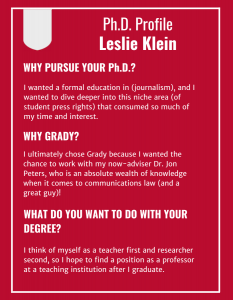Ph.D. Profile: Leslie Klein

Ph.D. Profile: Leslie Klein
Leslie Klein is a current Grady College Ph.D. student concentrating in Journalism. Formerly a high school English, yearbook and journalism teacher, Klein is researching the intersection of media law and scholastic journalism. She plans to use her research to advocate for student speech and press rights.
Following is a brief interview with Klein.
GC: What made you decide to pursue your Ph.D.?
LK: I started my career as a high school English, journalism and yearbook teacher. While in that position, I became passionate about advocating for student press rights. There was a lot I learned about journalism on the job, but I wanted a formal education in the subject, and I wanted to dive deeper into this niche area that consumed so much of my time and interest.
GC: What do you hope to do once you get your degree?
LK: I think of myself as a teacher first and researcher second, so I hope to find a position as a professor at a teaching institution after I graduate. I would also love to go back to advising because there’s something so special about the work that happens in a student newsroom. So fingers crossed there will be a college newspaper out there somewhere that’s looking for a new adviser when I’m on the job market!
GC: What made you decide to come to Grady College?
LK: When I was applying for my Ph.D., Dean Earnest Perry at the University of Missouri (where I got my master’s) recommended I add UGA to my list of potential schools because of the strong connections between the two programs. I ultimately chose Grady because I wanted the chance to work with my now-adviser Dr. Jon Peters, who is an absolute wealth of knowledge when it comes to communications law (and a great guy)!
GC: Please provide a brief explanation of your thesis topic and why it’s important to you.
LK: Student journalists are journalists. In many communities, college newspapers often function as the local paper of record. Yet, student journalism seems to be constantly under attack. (Look no further than Texas A&M, where university administrators just unceremoniously eliminated the print edition of their student newspaper.) I want to use my research to support student journalists and their advisers and advocate for the value that these organizations can bring to both their surrounding communities and the field of journalism as a whole.

GC: What other projects (research, teaching or otherwise) have you been involved with as a doctoral student?
Since coming to Grady, I have had the opportunity to collaborate with several faculty members on research projects that are in various stages of development. The faculty here really want you to engage in research and take the lead on projects, and the program facilitates those connections for you so you are able to start researching right away. This summer, I will also be joining the Torrance Center for Creativity and Talent.
GC: What has been the highlight of your doctoral education to date?
Last month, I learned that the first paper I wrote as a first author was accepted to a journal, and that was such a rewarding feeling. Knowing that people find your contribution to the field valuable after you have spent months thinking about it and writing makes all the time spent on the project worth it!
